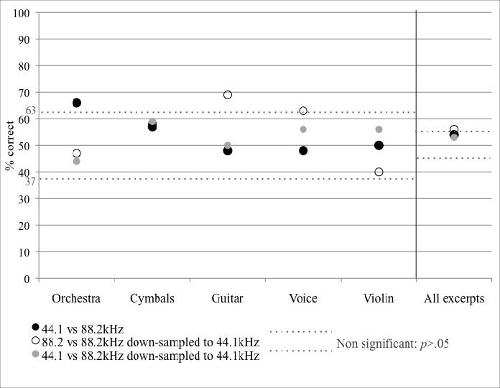Music Alchemist
Pokémon trainer of headphones
- Joined
- Dec 17, 2013
- Posts
- 20,092
- Likes
- 2,308
Alright then, since you are willing to prove it, go here and make your case by posting about it:
http://www.head-fi.org/t/738552/testing-the-claim-i-can-hear-differences-between-lossless-formats
You will need to conduct a series of tests. We will walk you through it there.
But for the record...I am saying that it is physically impossible for any human to tell the difference between Red Book and high res. The only difference is different masters being used. If the same master is used, it will sound the same whether it's CD, SACD, DVD, DSD, 16-bit, 24-bit, lossless, or even 256 kbps AAC. When you convert the files yourself, from high res to Red Book, there is no audible difference, and this has been documented. You can measure it and demonstrate that any differences are below the threshold of audibility, meaning that human ears cannot hear it.
And no, when you compress a file from higher to lower resolution, the data is lost forever. Converting it back to higher resolution does absolutely nothing. This does not work like lossless compression does.
http://www.head-fi.org/t/738552/testing-the-claim-i-can-hear-differences-between-lossless-formats
You will need to conduct a series of tests. We will walk you through it there.
But for the record...I am saying that it is physically impossible for any human to tell the difference between Red Book and high res. The only difference is different masters being used. If the same master is used, it will sound the same whether it's CD, SACD, DVD, DSD, 16-bit, 24-bit, lossless, or even 256 kbps AAC. When you convert the files yourself, from high res to Red Book, there is no audible difference, and this has been documented. You can measure it and demonstrate that any differences are below the threshold of audibility, meaning that human ears cannot hear it.
And no, when you compress a file from higher to lower resolution, the data is lost forever. Converting it back to higher resolution does absolutely nothing. This does not work like lossless compression does.



